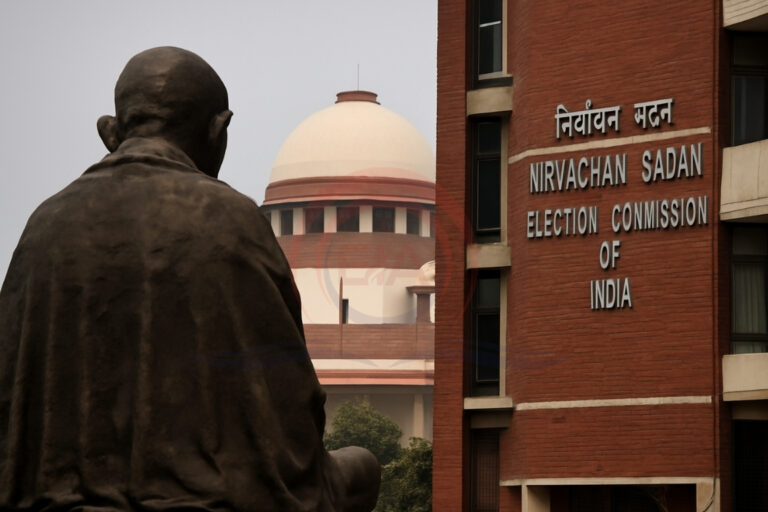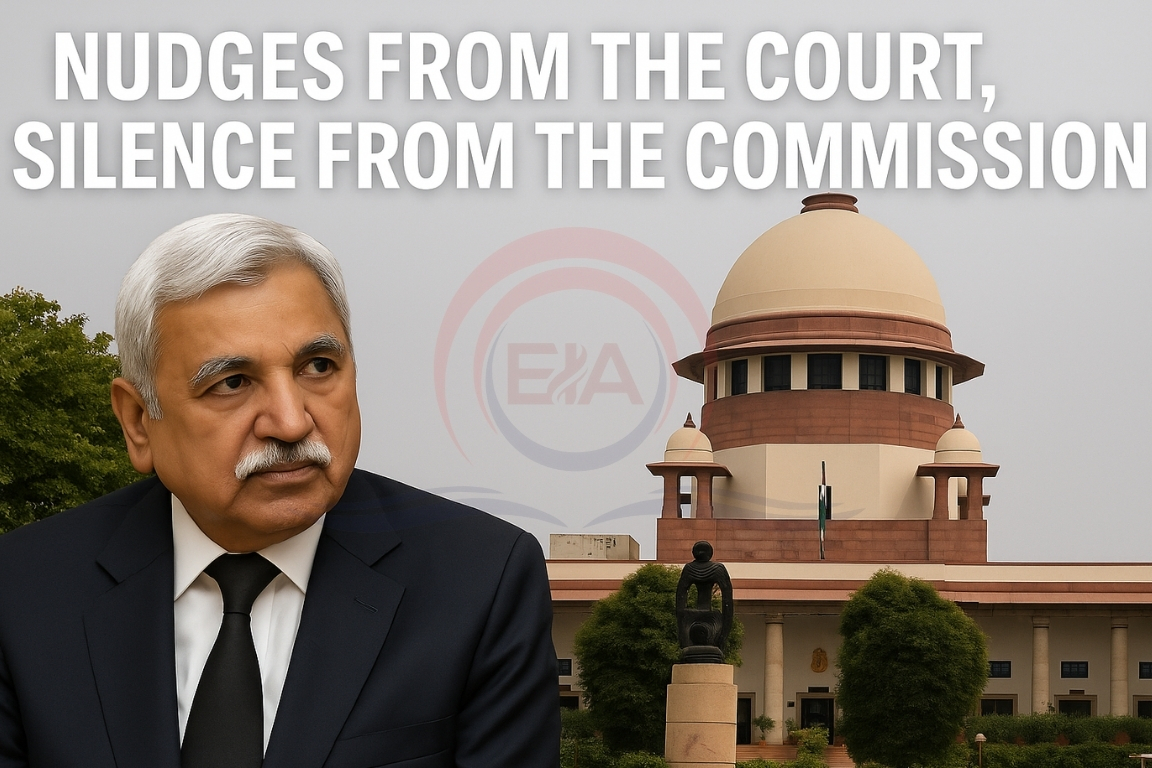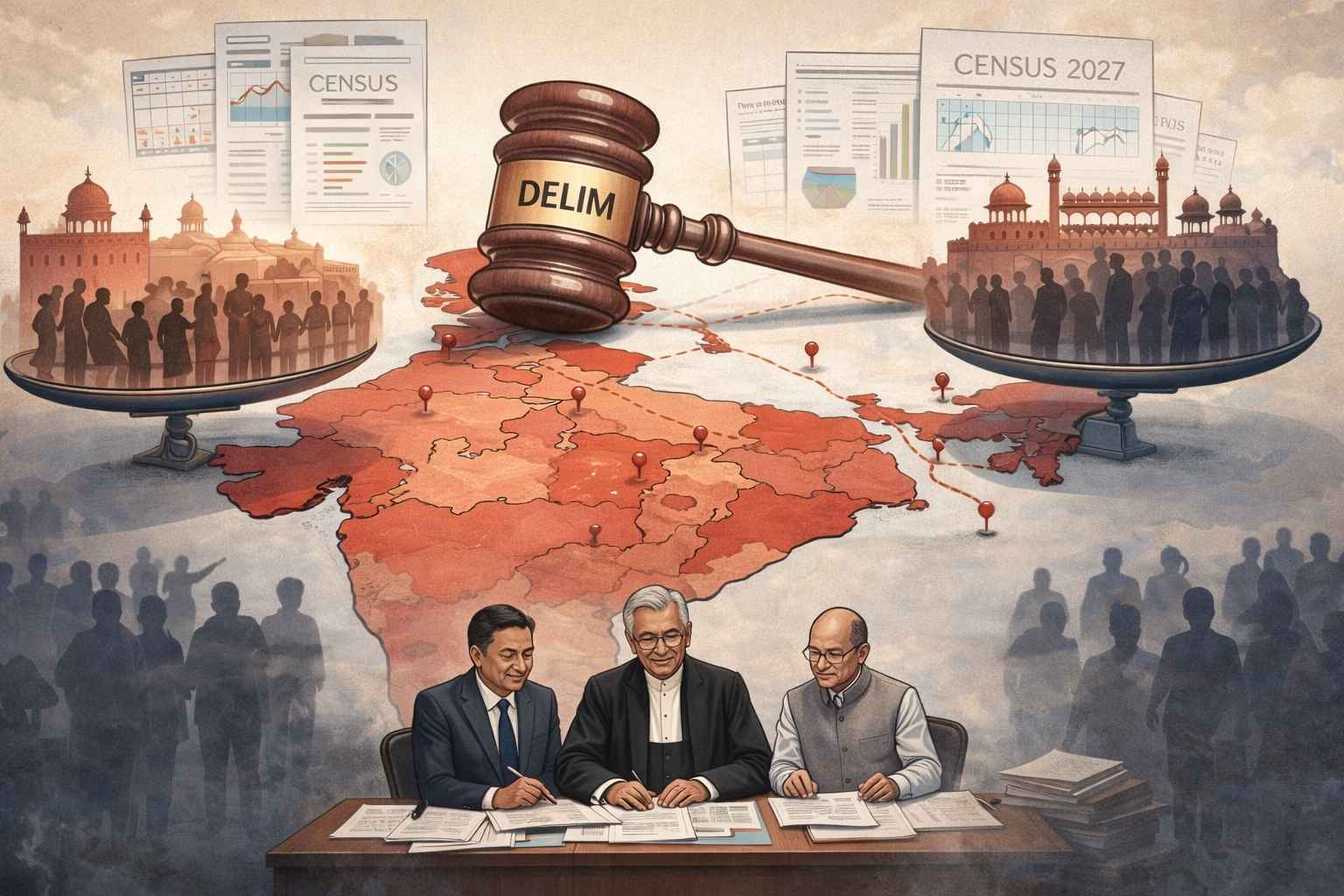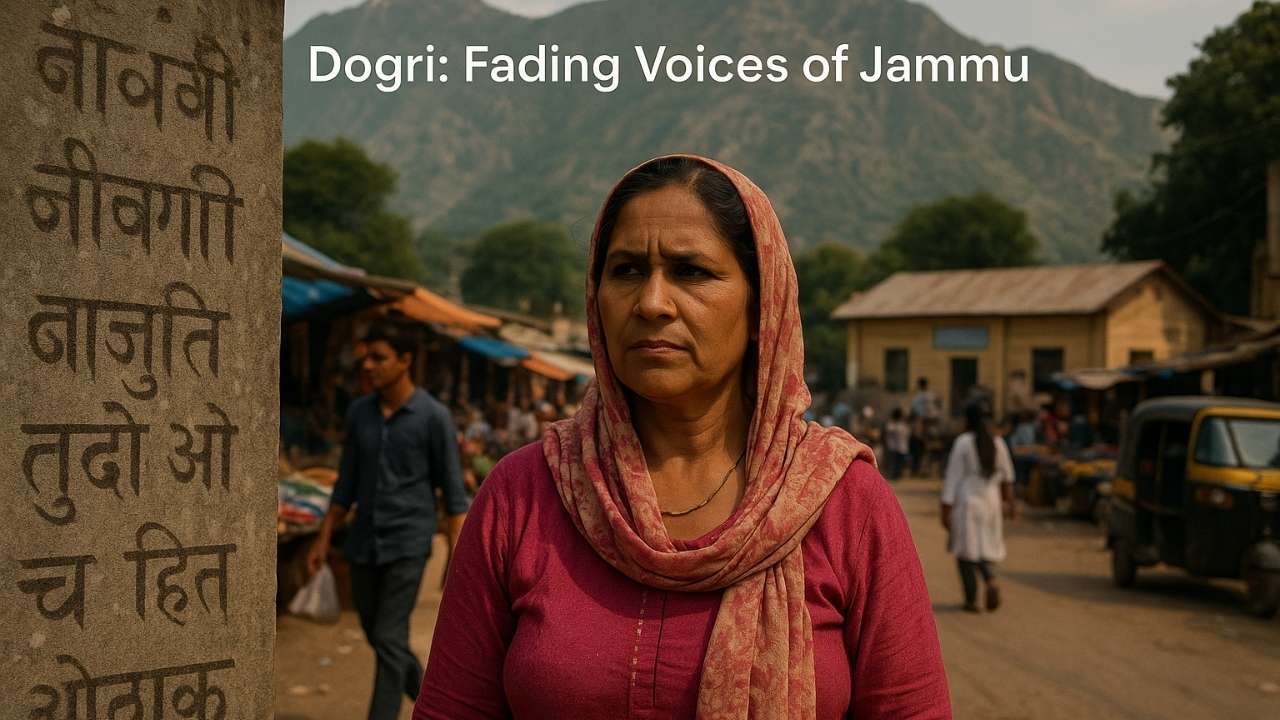The Supreme Court questioned the Election Commission of India (ECI) over its Special Intensive Revision (SIR) in Bihar, which requires fresh proof of citizenship from voters, raising concerns of mass disenfranchisement of the poor and marginalised.
Background of the Issue
- The ECI launched a Special Intensive Revision in Bihar demanding new citizenship documents from all voters within one month.
- Commonly held IDs like Aadhaar or ration cards are not accepted; only documents like birth certificates or passports are valid.
- Around 65 lakh people in Bihar may risk losing their voting rights due to strict documentation requirements.
Concerns Raised by the Supreme Court
- The Court asked why a sudden fresh documentation exercise was needed and its impact on millions unable to comply.
- It highlighted the humanitarian consequences of excluding poor, displaced, or flood-affected populations.
- The ECI’s response remained technical, without addressing the social realities of disenfranchisement.

Impact on Democracy and Citizens
- Shifts from “presumed inclusion” to “presumptive exclusion”, undermining universal adult franchise.
- Poor, rural, and marginalised voters face barriers in accessing the ballot box.
- Risk of creating two Indias:
- Documented middle class with voting power.
- Undocumented poor excluded from policy influence and welfare benefits.
- Voting could turn into a privilege rather than a constitutional right.
Historical and Legal Perspective
- India’s first CEC, Sukumar Sen, promoted inclusive elections by simplifying participation for illiterate masses.
- Present move resembles discriminatory practices like Jim Crow laws in the U.S. that blocked African-American voters.
- Supreme Court judgments (e.g., Lal Babu Hussein vs ERO, 1995; Md. Rahim Ali vs State of Assam, 2024) hold that disenfranchisement without due process is unconstitutional.
Concerns for Governance and Society
- Bureaucratic rigidity during monsoon season in a flood-prone, poor state worsens exclusion.
- Political focus will shift towards documented urban voters, leaving the marginalised unheard.
- A “silent emergency” emerges where rights are denied without formal declaration.
Way Forward
- ECI must prioritise enabling participation over mere technical accuracy.
- Parliamentary and civil society oversight is needed to prevent exclusion.
- Upholding universal franchise is vital; citizenship should be a right guaranteed by the Constitution, not dependent on paperwork.
Conclusion:
The current SIR risks undermining India’s democratic foundation. Voting is an act of belonging, and the ECI must ensure no citizen is denied this equal share in the republic.





